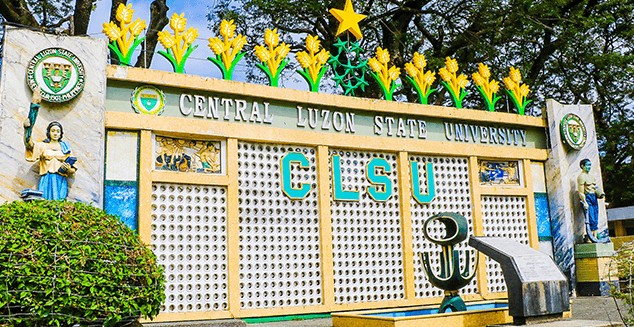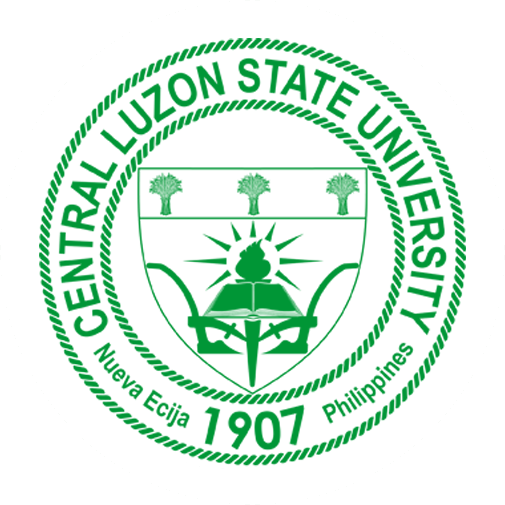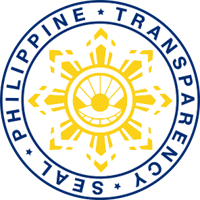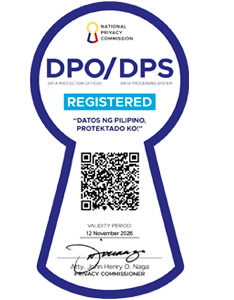About the University

Central Luzon State University
The Central Luzon State University (CLSU), one of the renowned and prestigious state institutions of higher learning in the country, straddles a 658-hectare campus in the Science City of Muñoz, Nueva Ecija, 150 kilometers north of Manila.
The lead agency of the Muñoz Science Community and the seat of Central Luzon Agriculture, Aquatic and Resources Research and Development Consortium (CLAARRDEC).
The university was designated by the Commission on Higher Education (CHED) – National Agriculture and Fisheries Education System (NAFES) as National University College of Agriculture (NUCA) and National University College of Fisheries (NUCF). Similarly, designated as CHED Center of Excellence (COE) in Agriculture, Agricultural Engineering, Biology, Fisheries, Teacher Education, and Veterinary Medicine - the most number of COEs in Central and Northern Luzon Regions. It is likewise designated as the Center of Research Excellence in Small Ruminants by the Philippine Council for Agriculture, Aquaculture, Forestry and Natural Resources Research and Development - Department of Science and Technology (PCAARRD-DOST). Also designated by the Department of Environment and Natural Resources (DENR) as the Regional Integrated Coastal Resources Management Center. Additionally, it was picked as the Model Agro-Tourism Site for Luzon.
CLSU stands out as the only comprehensive state university in the Philippines with the most number of curricular programs accredited by the Accrediting Agency of Chartered Colleges and Universities in the Philippines (AACCUP) with Level IV accreditation. The university is further declared Cultural Property of the Philippines with the code of PH-03-0027 due to its high historical, cultural, academic, and agricultural importance to the nation.
To date, CLSU remains as one of the premier institutions of agriculture in Southeast Asia known for its breakthrough researches in aquatic culture (pioneer in the sex reversal of tilapia), ruminant, crops, orchard, and water management, living through its vision of becoming “a world-class National Research University for science and technology in agriculture and allied fields.”
Institutional Profile
ISO 9001:2015 Certified
Centers of Excellence
Program Accreditation
Transparency Seal
Agro-Tourism Site for Central Luzon
Mission, Vision and Philosophy
Section 2 of Republic Act No. 4067 states "The university shall primarily give professional and technical training in agriculture and mechanic arts besides providing advanced instruction and promoting research in literature, philosophy, the sciences, technology and arts."
Moreover, the provisions of Republic Act No. 8292 enabled its Board of Regents to expand its mandate and thus adopted the following:
Mission
CLSU shall develop globally competitive, work-ready, socially-responsible and empowered human resources who value life-long learning; and to generate, disseminate, and apply knowledge and technologies for poverty alleviation, environmental protection, and sustainable development.
Vision
CLSU as a world-class National Research University for science and technology in agriculture and allied fields.
Philosophy
The ultimate measure of the effectiveness of Central Luzon State University as an institution of higher learning is its contribution to and impact on the educational, economic, social, cultural, political and moral well-being and environmental consciousness of the peoples it serves.
CLSU Core Values and Principles
We refer to the following as the “Essence of CLSU” to reflect and to further the values and principles that make CLSU great and unique.
Quality and Excellence
CLSU believes that the relentless pursuit of quality and excellence constitutes the foundational element of its existence.
Innovativeness and Creativity
CLSU considers research as the lifeblood of the institution to be further nurtured and cultivated as it provides the energy and dynamism in its quest to become a comprehensive research university.
Inclusiveness and Stewardship
CLSU supports and sustains an equitable community that will have access to the benefits of education and discovery.
Transformative and Caring
CLSU commits to provide a teaching and learning environment that provides opportunities for critical and analytical thinking, character building, skills training, and leadership training where adequate facilities and resources are available and accessible.
Efficiency and Effectiveness
CLSU demands and maintains that an efficient and professional administration and corporate organization is required to advance the University's vision and mission.
Hard Work and Integrity
CLSU practices the values of hard work and integrity as the cornerstones of performance and output for career development and professional growth.
Transparency and Accountability
CLSU operates under the principles of transparency and accountability where freedom, independence and autonomy is respected but balanced by shared management principles, openness and responsibility.
Commitment to Public Service
CLSU recognizes that its core purpose is to serve the interest of the people in Central Luzon, the country and the Asian region through the creation, dissemination and application of knowledge.
The CLSU Educational Philosophy
The Central Luzon State University is committed and dedicated to provide a holistic transformative education anchored on its mission statement and its institutional core values. As stated on its mission, the University shall develop globally competitive, work-ready, socially-responsible and empowered human resources who valuelife-long learning; and shall generate, disseminate, and apply knowledge and technologies for poverty alleviation, environmental protection and sustainable development. In consonance, the educational philosophy of the University is reflective of its teaching and learning environment.
Along with the curricular programs, the academic journey of learners revolves on three value-laden dimensions: creativeness and innovativeness, hard work and integrity, and inclusiveness and transformativeness.
With these, the University:
Provides a teaching and learning environment which harness creativity and innovativeness among learners. It advocates the development of individuals to become agents of change, innovators and leaders, imbued with an outward and forward-thinking perspectives in their respective fields. It further ensures the vital role of research in promoting quality and excellence. Thus, regular updating of curricular programs, empowerment of human capital, modernizing instructional and pedagogical resources, and equal opportunity for all, are always observed.
Adopts experiential learning on its programs along with the dynamic and continuous engagement between the faculty, the staff, the students and the community. The shared values of hard work and integrity puts forth in the discovery of new knowledge and in its application in the real-life contexts. Thus, enabling and preparing the learners to be effective and efficient navigators of the future.
Provides experiences that enable learners to discover the fulfillment of embracing diversity in the form of various academic collaborations at the local, regional and international levels. Students are guided to acknowledge and respect peoples and their cultures for inclusive societal transformation.
University Lifelong Learning Policy
The CLSU Lifelong Learning Policy Central Luzon State University (CLSU), as an institution of higher learning is committed and dedicated on providing lifelong learning opportunities and experiences among its stakeholders.
It also aims to enhance the quality of life through these learnings as an ultimate goal, to engender life qualities to ensue satisfaction and happiness are desired. Specifically, the university shall: a. Ensure that benefits of formal, non-formal, and informal education, and discovery are made accessible, inclusive and equitable, to communities and stakeholders, regardless of ethnicity, religion, disability and gender. b. Provide a teaching and learning environment that supports transformative opportunities for critical and analytical thinking, character building, skills training, and leadership training where adequate facilities and resources are available and accessible.




